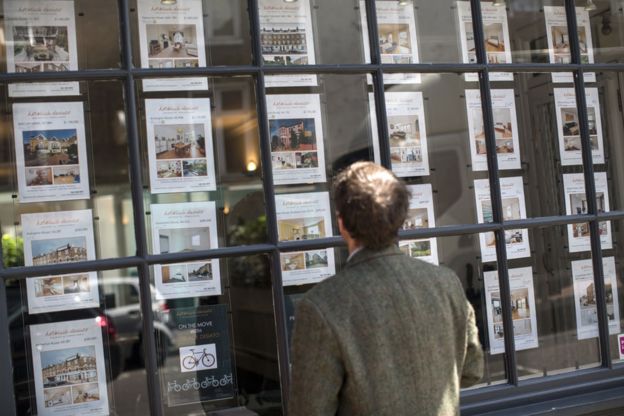The complicated business of house buying when you're disabled
Disabled people's income can be low or vary wildly depending on health. This can make buying a home, and the accessibility that brings, difficult.
For many disabled people, living in accessible accommodation is important and key to quality of life. It's sometimes hard to achieve this if you rent, whereas if you own your own home, you can ensure the environment is as you need it. But house-buying is a huge financial step and can come with complications.
When buying property, mortgage lenders will tell you how much they are prepared to loan you based on your income and financial history. But those with a disabling condition which fluctuates from good to bad may unhelpfully have an income which fluctuates along with their health. Some banks allow you to declare welfare benefits as income, but if you go through a good patch or if rules about entitlement change, you might find your benefits disappear. All this makes it difficult to demonstrate a stable income, meaning the bank don't have the confidence to loan you much money and you find it hard to buy a house.
Deborah Kelly and her husband Stephen bought a house in Suffolk last year. They're both disabled and unable to work, but managed to make the purchase using a scheme called HOLD, which enables disabled people to buy through shared ownership - they own a portion of the house, and a housing association owns the rest. Each month, they pay a combination of interest-only mortgage, and rent.
Kelly feels incredibly lucky to have been able to do this but found the process very slow with lots of people involved. "There were an awful lot of forms. Lots of waiting on being given the go ahead."
Before this, Kelly and her husband were dividing their time between their parents' homes in Suffolk and Surrey. Neither find travel easy and it became a struggle.
 Image caption Deborah Kelly and her husband Stephen spent time living with parents
Image caption Deborah Kelly and her husband Stephen spent time living with parents
As their income is solely from benefits, they have found recent welfare reform unsettling. "When the government's shaking everything up, you can't feel very secure," she says. "I had been quite pessimistic, but now I'm more optimistic. We're going to be all right."
The couple have been living in their own home for a year and say they have "massive freedom" now.
A mortgage typically runs for over 20 years and some disabled people have to consider their impairment may deteriorate, meaning they won't be able to work the same amount of hours as they once did. In usual circumstances, working fewer hours will lower the amount of money a person is able to earn. Income protection insurance sounds sensible in the circumstances, but it's harder and more expensive to get if a customer has a pre-existing medical condition.
So what do you do? Most people would seek advice, but it's not easy to find independent financial advisers who are familiar with all the foibles of having a lifelong impairment.
 Image copyright Getty Images
Image copyright Getty Images
Aware of this gap in information, last month disability charity Scope launched a digital information hub to provide money management advice to disabled people, in conjunction with the Money Advice Service.
Though Deborah and Stephen found a way to get what they want, for disabled people who do work, it can be a struggle to find that kind of security.
Sarah Rigby, who lives in Liverpool, used to work as a physicist, but stopped four years ago when it became increasingly unsustainable. She experimented with working part time, but found herself exhausted. She was later diagnosed with Ehlers Danlos Syndrome, a genetic condition which affects her joints, leaving her tired and with limited mobility.
She now claims Disability Living Allowance for those extra costs of being disabled, but the household income comes entirely from her partner Carl, who is also a scientist. "I mind him paying for it all," she says.
They have a joint mortgage, which remains affordable on a single income. "We were very cautious when we bought the house," she explains. "We were both quite junior. We wanted a mortgage we could afford on a single salary."
 Image caption Sarah Rigby had to give up work because of her disability
Image caption Sarah Rigby had to give up work because of her disability
Rigby has recently been turning her mind towards the future and the fact her mobility is likely to decline. "Our house has no downstairs loo and there's no room for a stairlift," she says, adding that they will have to move in the next five years. "I know that need is coming and it makes me feel like a burden."
Previous research from Scope shows that disabled people find it harder to obtain mainstream, affordable credit, and so are less likely to use any form of credit. But those that do are much more likely to get high interest loans like those from doorstep lenders.
Adding to an already complex picture, the charity also estimates that disabled people pay an average of £550 per month in extra costs such as transport and equipment in order to make their lives more accessible, and that benefits do not cover the whole of this cost.
Buying seems out of reach altogether for some disabled people, especially those with families.
Mary Hammonds from Warwickshire has ME, and has just had a baby. The new addition to their family meant Hammonds and her husband Steve needed to move to a bigger property, ideally a bungalow. She says it was tough to find one on the rental market - partly because of a shortage of bungalows and partly because those which are available are often restricted to older people.
"We can't muster up the deposit for a starter home and then also the money to make it accessible," she says.
For most of their relationship, her husband has been the sole earner. "Now he's in his 40s and ineligible for any of the first time buyer assistance programmes, or a longer term mortgage," says Hammonds. The costs that come with being disabled don't help.
"We were getting close to a possible deposit, but £5,500 for the stairlift, £1,500 for the powerchair, £2,000 more than we might otherwise have spent on a second-hand car that's big enough to carry two adults, one baby, one powerchair and ramps... see our savings vanish, and that's even before we buy baby stuff."
- For more advice visit Scope's financial advice pages.
For more Disability News, follow BBC Ouch on Twitter and Facebook, and subscribe to the weekly podcast.
